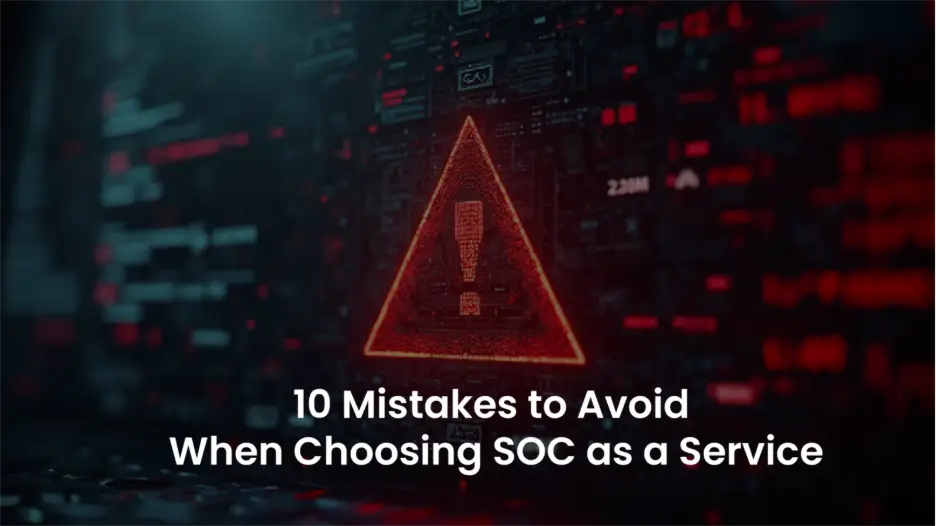Achieve Remarkable Success by Mastering Niche Specialization as a Virtual Assistant
Unpacking the Vital Concept of Niche Specialization
Niche specialization signifies a strategic approach that focuses on a specific area of expertise within the vast field of virtual assistance. By concentrating on a well-defined niche, virtual assistants can effectively meet the distinct demands of their clients, thereby distinguishing themselves in a crowded marketplace. This targeted strategy allows virtual assistants to refine their skills and offer tailored services that resonate with their desired audience. Profitable niches to consider include:
- Social media management catering specifically to small businesses
- Real estate virtual assistance aimed at property professionals
- Content creation and copywriting services
- Customer service support designed for e-commerce platforms
- Appointment scheduling services tailored for healthcare professionals
- Technical support for software companies
- Event planning and coordination services
- Financial administration services customized for freelancers
This focused strategy not only enhances service quality but also helps in building a strong reputation for expertise in the chosen niche, making virtual assistants more attractive to potential clients seeking specialized support.
Discovering the Significant Benefits of Niche Specialization
Pursuing specialization offers numerous advantages that can greatly elevate the quality of services delivered by virtual assistants. A primary advantage is the opportunity to develop deep expertise in a specific area, which often translates into higher service quality. Clients increasingly prefer to engage with professionals who demonstrate a comprehensive understanding of their unique requirements. The main benefits of niche specialization encompass:
- Increased rates owing to the perceived value of specialized knowledge
- Enhanced client satisfaction through customized solutions
- A fortified professional reputation within a distinct niche
- Improved client retention and loyalty
- Greater marketing effectiveness by precisely targeting specific demographics
- Opportunities for collaboration and partnerships with fellow niche experts
- Increased job satisfaction derived from working in a preferred field
The synergy of these advantages positions virtual assistants for exceptional success, potentially leading to a more rewarding and prosperous career trajectory.
Recognising the Challenges Linked to Niche Specialization
While the benefits of niche specialization are plentiful, it also brings forth various challenges. A significant concern is the limitation on the client base; by zeroing in on a specific niche, virtual assistants may encounter a smaller pool of potential clients. This focused strategy necessitates an effective marketing plan to successfully reach the intended audience. Moreover, staying relevant within a chosen niche requires continuous learning and adaptation. Virtual assistants must actively update their skills to keep pace with industry advancements and evolving client expectations.
Transitioning out of a niche can also be challenging if market dynamics shift or new opportunities emerge. Specialization may lead to burnout if not managed properly, as the demands for continual innovation and excellence can be daunting. Consequently, it is vital for virtual assistants to thoroughly assess these challenges against the benefits and prepare for necessary adjustments along their career journey.
Effective Strategies for Achieving Success in Niche Specialization as a Virtual Assistant

Defining the Essential Characteristics of a Successful Niche
A successful niche should exhibit three fundamental characteristics: robust demand, potential for in-depth specialization, and profitability. When selecting a niche, thorough market research is crucial to identify areas that not only ignite your passion but also possess a growing client base. For instance, niches such as virtual assistance for e-commerce businesses and social media consultancy have witnessed significant demand in recent years, propelled by the digital transformation of business operations.
Real-world examples of successful niche selection can shed light on this process. A virtual assistant focusing on administrative support for real estate agents can create a profitable market by providing tailored services such as transaction coordination and marketing management. Similarly, specialising in healthcare administration services allows virtual assistants to tap into the expanding health sector, offering services specifically designed to meet the requirements of medical practices. Identifying a niche that aligns with both market demand and personal interests can lead to a fulfilling and financially stable career.
Effective Strategies for Identifying Your Niche
Identifying a niche requires a strategic combination of self-reflection and market analysis. Begin by assessing your skills and interests; what inspires you? What experiences can you utilise to provide valuable services? Concurrently, perform research into market demands to uncover gaps that your skills could effectively address.
Actionable steps for niche identification may encompass:
- Conducting surveys or interviews with potential clients to understand their needs
- Exploring job boards and freelance platforms to pinpoint in-demand skills
- Engaging in online communities and forums to observe discussions and emerging trends
- Reflecting on your past work experiences to identify areas where you excelled
Upon compiling this information, examine the intersections between your skills, interests, and market demand. This balanced approach will guide you towards a niche that not only excites you but is also commercially viable, ensuring a sustainable career path.
Essential Steps to Attain Specialization in Your Niche

Embarking on the journey toward specialization necessitates intention and dedication. Commence by undertaking comprehensive research into your chosen niche, focusing on understanding the specific challenges clients encounter and the skills crucial for addressing these challenges. This foundational knowledge will inform your subsequent steps toward specialization.
Training and practical experience are vital components of the specialization process. Enrol in relevant courses, attend workshops, and seek mentorship from industry professionals to deepen your understanding. Networking with others within your niche can provide invaluable insights and foster essential connections.
Continuous improvement remains paramount, as niches evolve and client expectations shift. Regularly solicit feedback from clients to refine your services and ensure you remain abreast of industry trends. As you gain experience, be prepared to modify your offerings to meet the changing needs of your clients, ensuring you remain competitive in your niche.
Smart Marketing Approaches for Promoting Your Specialized Services
Effective Marketing Strategies for Your Niche Services
Marketing a niche demands a targeted approach that specifically addresses your ideal audience. Start by clearly defining who your ideal clients are and understanding their unique pain points. Tailor your messaging to resonate with their needs and illustrate how your specialized services can effectively solve their challenges.
Successful marketing strategies for niche services may include:
- Creating a professional website that highlights your expertise and services
- Utilising social media platforms to share valuable content and engage with potential clients
- Networking in industry-specific forums and attending relevant events
- Offering free resources or consultations to attract potential leads
- Collaborating with other professionals in your niche for cross-promotion
- Implementing SEO strategies to enhance online visibility
- Utilising email marketing to nurture relationships and provide valuable insights
- Gathering and showcasing testimonials and case studies from satisfied clients
By focusing on the unique aspects of your services and the specific needs of your audience, you can effectively market your niche and attract the right clients, ultimately driving business growth.
Selecting the Best Platforms for Marketing Your Niche Services
Selecting the appropriate platforms for marketing largely hinges on your specific niche and target audience. Different niches appeal to diverse demographics and preferred communication channels. For example, if your niche targets young entrepreneurs, platforms like Instagram and TikTok may be particularly effective due to their visual nature and popularity among younger consumers.
Conversely, if you cater to more professional or corporate clients, LinkedIn may serve as the ideal platform for establishing connections and showcasing your expertise. Additionally, niche-specific forums and websites can provide valuable platforms for engagement and advertising.
Understanding where your target clients are active online is essential. Conduct audience research and observe where competitors successfully market their services to uncover the most effective platforms for your niche. Ultimately, the goal is to connect with your audience in spaces where they are most engaged, ensuring that your marketing efforts yield optimal results.
Establishing a Strong Brand Around Your Niche
Creating a brand centred on your niche involves establishing a unique identity that resonates with your target audience. Start by defining your brand values and determining what differentiates you from competitors. This clarity will shape your messaging and visual components, aiding in the development of a cohesive brand presence.
Consistency is vital in branding; ensure that your website, social media profiles, and marketing materials convey a unified message. This consistency includes using the same colour scheme, typography, and tone of voice across all platforms. Additionally, your branding should effectively communicate your expertise and the specific benefits of your niche services.
Engaging storytelling can further enhance your brand’s attractiveness. Share your journey, challenges, and victories to connect with your audience on a personal level. By presenting a relatable and trustworthy image, you can cultivate a compelling brand that attracts clients and fosters long-lasting relationships.
The Impact of Niche Specialization on Client Relationships
Understanding Client Expectations for Specialized Services
Clients seeking specialized virtual assistants generally hold high expectations regarding expertise and service quality. They anticipate that you possess comprehensive knowledge in your area of specialization, enabling you to provide tailored solutions that effectively meet their distinct needs. This expectation for high-quality, informed service can profoundly influence client satisfaction and retention.
Understanding these expectations allows you to position your services more effectively. Regularly communicate your qualifications and experiences that align with their needs, reinforcing your status as a specialist. By consistently meeting these expectations, you can build trust and foster long-term relationships with clients, ensuring they view you as an integral component of their operations.
Strategies for Effectively Managing Client Expectations
Managing client expectations necessitates clear and open communication from the outset. Set realistic goals regarding what you can deliver based on your expertise and the scope of your services. Discuss timelines, deliverables, and any potential challenges upfront to prevent misunderstandings later on.
Regular updates and feedback loops can also enhance client satisfaction. By keeping clients informed about your progress and seeking their input, you demonstrate your commitment to their needs and encourage collaboration. This transparency helps solidify trust and allows for any necessary adjustments to be made proactively.
Additionally, be prepared to address any issues that may arise during your work. Promptly and professionally addressing concerns can significantly enhance the client experience, fostering satisfaction and loyalty.
Building Trust with Clients Through Specialization
Specialization inherently fosters trust between you and your clients, as they perceive you as an authority in your field. When clients acknowledge your extensive knowledge and experience, they are more likely to rely on your recommendations and guidance. This trust is fundamental for cultivating strong, long-lasting relationships.
Demonstrating your expertise can take various forms, such as sharing case studies, publishing informative articles, or hosting webinars centred around your niche. By showcasing your knowledge and offering valuable insights, you reinforce your position as a trusted expert. Reliability in meeting deadlines and delivering quality work also plays a crucial role in building trust; consistently meeting or exceeding client expectations solidifies your reputation.
Enhancing Client Relationships Through Niche Expertise
Leveraging your niche expertise can profoundly deepen client relationships by providing unique insights and solutions. As you accumulate knowledge in your field, you can offer clients bespoke advice that addresses their specific challenges, resulting in heightened satisfaction and loyalty.
Consider implementing regular check-ins with clients to discuss their evolving needs and how your expertise can assist them. This proactive approach positions you not merely as a service provider, but as a strategic partner invested in their success. The more you understand their business and industry, the better you can customize your services, fostering a mutually beneficial relationship.
Additionally, hosting workshops or creating exclusive content for clients can further reinforce these relationships. By offering valuable resources that leverage your expertise, you demonstrate your commitment to their success and nurture a collaborative atmosphere. The outcome is a client relationship built on trust, mutual respect, and shared objectives.
Key Skill Development for Successful Niche Specialization
Essential Skills Required for Your Niche
The skills necessary for niche specialization can vary significantly based on the selected area, yet certain fundamental skills are common across most niches. Robust technical skills relevant to your niche are essential; whether it involves mastering specific software, understanding industry regulations, or being proficient with pertinent tools, these skills lay the foundation of your service offerings.
Beyond technical skills, effective communication abilities are paramount. The capacity to convey information clearly and concisely fosters improved collaboration and enhances client satisfaction. Problem-solving skills are equally vital, as clients often turn to you for creative solutions to their challenges.
Continuous learning is crucial for maintaining a competitive edge within your niche. Engaging in workshops, enrolling in courses, and staying updated with industry trends are all effective strategies for skill development. This ongoing commitment to learning ensures that you remain relevant and valuable to your clients, ultimately enhancing your service delivery.
Strategies for Acquiring New Skills Relevant to Your Niche
Acquiring new skills to fortify your niche specialization can take various forms. Formal education is one pathway, with numerous online platforms offering courses tailored to specific skills required in your niche. Platforms such as Coursera and LinkedIn Learning offer a wealth of resources that can elevate your capabilities.
In addition to formal learning, consider pursuing mentorship opportunities. Collaborating with experienced professionals in your niche allows you to gain insights and practical knowledge that can accelerate your development. Real-world experience is also invaluable; volunteering or undertaking pro bono work within your niche can provide hands-on learning and showcase your skills to prospective clients.
Self-study is another effective method for skill acquisition. Reading industry publications, participating in relevant webinars, and engaging in online forums can all contribute to your knowledge base. The key is to tailor your learning to the specific needs of your niche, ensuring your skill development aligns with market demands.
Staying Informed on Industry Trends
Remaining informed about industry trends is critical for maintaining relevance within your niche. Engaging with professional communities, such as industry-specific forums or social media groups, enables you to stay updated on developments and emerging best practices.
Subscribing to industry publications, newsletters, and podcasts offers another avenue for keeping abreast of trends. Regularly consuming this content can inspire new ideas and ensure you are aware of any shifts that might impact your services.
Participating in industry events, conferences, and workshops is also a fantastic way to network and learn from peers. These interactions can provide insights into what other professionals are experiencing and how they are adapting to changes in the market. By remaining active and engaged, you position yourself as a knowledgeable leader within your niche.
Financial Considerations in Niche Specialization
The Effect of Specialization on Your Pricing Structure
Specialization typically enables virtual assistants to charge higher fees due to the perceived value associated with expertise. Clients are generally willing to pay a premium for services provided by specialists who thoroughly understand their unique challenges and can offer tailored solutions. However, it is essential to achieve a balance between pricing and market demand; setting prices too high may deter potential clients, while underpricing can diminish the perceived value of your services.
When determining your rates, consider your experience, the complexity of the services offered, and the pricing strategies of competitors within your niche. Regularly reviewing and adjusting your pricing strategy based on market conditions and the quality of your services can help ensure profitability while retaining competitiveness.
Moreover, providing added value can justify higher pricing. This might include offering premium services, such as more extensive research or additional consulting hours, which can enhance the perceived value of your offerings and attract discerning clients.
Managing Costs Associated with Specialization
Costs associated with specialization can encompass various factors, including training, certification, and marketing expenses. Effectively managing these costs is essential for maintaining profitability within your niche. Start by crafting a budget that outlines your anticipated expenses and revenue expectations, allowing you to monitor your financial health closely.
Investing in training and certifications relevant to your niche often yields substantial returns. However, it is crucial to evaluate educational opportunities carefully, focusing on those that will equip you with the most pertinent skills and knowledge. Consider the potential for increased income from new skills when assessing training costs, ensuring every investment aligns with your career objectives.
Marketing expenses can also accumulate quickly. Explore cost-effective marketing strategies, such as leveraging social media, to promote your services without straining your finances. By managing these costs effectively and prioritising high-impact investments, you can ensure that your niche specialization remains financially viable and sustainable over time.
Long-Term Financial Advantages of Niche Specialization
The long-term financial benefits of niche specialization are considerable. Specialization can lead to higher rates, resulting in a more stable income stream as you cultivate a loyal client base. As trust and expertise develop, clients are likely to refer you to others and seek your services for ongoing needs, providing a consistent revenue source.
Moreover, focusing on a specific niche often unveils opportunities for growth and expansion. As your reputation solidifies, you may discover additional services within your niche that clients require, allowing you to broaden your offerings and increase revenue potential.
Establishing yourself as an expert within your niche can also lead to speaking engagements, workshops, and consulting opportunities, further enhancing your income potential. Ultimately, the combination of elevated rates, a loyal client base, and growth opportunities positions you for long-term financial stability and success.
Market Positioning Through Niche Specialization
Niche specialization can significantly enhance your market position by establishing a distinctive brand identity. As you carve out a niche in a specific area, you differentiate yourself from generalist virtual assistants and attract a targeted audience that values your expertise. This unique positioning can enhance your market share and influence.
By consistently showcasing your knowledge and delivering high-quality services, you reinforce your reputation as a go-to expert within your niche. This not only attracts new clients but also facilitates partnerships and collaborations with other professionals, further amplifying your market presence.
Furthermore, the clarity that comes with specialization allows for more effective marketing strategies. When your audience understands precisely what you offer and how it benefits them, they are more likely to engage with your services. This focused approach can lead to increased visibility, higher conversion rates, and a more robust overall market presence.
Strategies for Successfully Scaling Your Niche Specialization Business
Effectively Expanding Your Niche Services
Expanding your services within your niche can involve introducing complementary offerings or deepening your expertise. Begin by seeking feedback from your existing clients to identify additional needs that align with your current services. This input can provide valuable insights into potential services that could enhance your value proposition and attract new clients.
Consider leveraging your existing skills to branch into related areas. For instance, a virtual assistant specializing in social media management may expand into content creation or digital marketing strategy, enabling a more comprehensive service package that meets a broader range of client needs.
Market demand should always guide your expansion efforts. Research industry trends and emerging needs within your niche to ensure that your new services resonate with potential clients. By aligning your expansion with client needs and market dynamics, you can effectively and sustainably grow your service offerings, paving the way for long-term success.
Anticipated Challenges When Scaling Your Services
Scaling a niche specialization business introduces several challenges, including the necessity of maintaining quality and managing an increased workload. As you broaden your service offerings or client base, it is essential to ensure that quality remains consistent. This may require hiring additional staff or outsourcing specific tasks, necessitating careful planning and resource management.
Another challenge is the risk of diluting your specialization. As you expand your service offerings, there is a possibility that you may lose the focused expertise that initially attracted clients. It is crucial to evaluate and manage this balance, ensuring that you retain a clear brand identity and value proposition while expanding your services.
Additionally, scaling can lead to increased operational complexities. Implementing systems and processes to manage the growing workload efficiently is vital. Consider investing in project management tools and software that align with the specific needs of your niche to streamline operations and enhance productivity.
Utilising Technology for Growth
Technology plays a crucial role in managing increased workloads and improving efficiency as you scale your niche specialization business. Numerous tools are available that can simplify your operations, from project management software to customer relationship management (CRM) systems. Implementing these technologies can help you stay organised and maintain high levels of client satisfaction.
For example, automation tools can be utilised to handle repetitive tasks, allowing you to focus on more strategic areas of your business. Email marketing platforms can assist in nurturing leads and sustaining client relationships, while time tracking and accounting software can streamline financial management as your client base expands.
Moreover, technology facilitates communication and collaboration, particularly if you grow your team. Tools like Slack or Microsoft Teams enable seamless communication among team members, regardless of location, ensuring that everyone remains aligned and informed. By thoughtfully leveraging technology, you can enhance your operational efficiency and effectively support your growth strategy.
Frequently Asked Questions
What constitutes niche specialization in virtual assistance?
Niche specialization in virtual assistance involves concentrating on a specific area of expertise to deliver tailored services that meet the distinct needs of clients within that niche, thereby improving service quality and client satisfaction.
How can I accurately pinpoint my niche as a virtual assistant?
To determine your niche, assess your skills and interests while investigating market demand. Seek intersections between your passions and what clients need, ensuring your niche is both fulfilling and commercially viable.
What benefits arise from specializing in virtual assistance?
Specializing allows you to charge higher rates, enhance service quality, improve client satisfaction, and establish a solid professional reputation within your niche, ultimately leading to a more successful career path.
What effective strategies should I use to market my specialized services?
Market your niche by targeting the right audience, utilising tailored messaging, leveraging social media, creating a professional website, and engaging in networking opportunities to effectively showcase your expertise and attract clients.
Which platforms are ideal for promoting niche services?
The optimal platforms vary by niche but may include social media channels, professional networks like LinkedIn, and niche-specific forums where your target audience is most active, allowing you to engage effectively with potential clients.
How does specialization influence client relationships?
Specialization builds trust as clients view you as an expert. Meeting their specific needs can lead to long-term relationships, increased client loyalty, and a solid reputation in your niche.
What critical skills are necessary for niche specialization?
Essential skills differ by niche but often include strong technical skills, effective communication, problem-solving abilities, and a dedication to continuous learning to remain competitive and relevant.
How can I acquire new skills relevant to my niche?
New skills can be acquired through formal education, online courses, mentorship opportunities, self-study, and practical experience relevant to your niche, ensuring your skill development aligns with market demands.
What financial implications does niche specialization entail?
Specialization can lead to higher pricing due to perceived value, but costs associated with training and marketing must be managed effectively to maintain profitability and ensure long-term success.
What challenges might I encounter when scaling my niche services?
Challenges include maintaining quality, managing increased workload, potential dilution of specialization, and implementing efficient operational systems to support growth and ensure client satisfaction.
Discover our content on YouTube!
The Article Niche Specialization Strategies for Human Virtual Assistants First Published On: https://vagods.co.uk
The Article Human Virtual Assistants: Strategies for Niche Specialization Was Found On https://limitsofstrategy.com
References:
Human Virtual Assistants: Strategies for Niche Specialization


